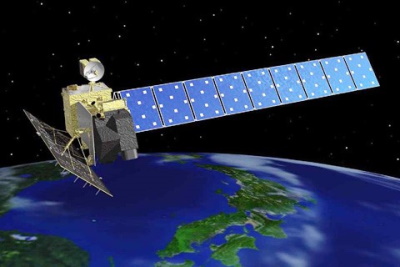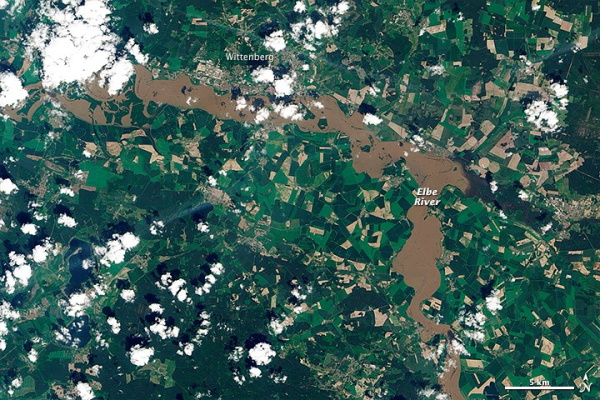- News
- National missions in the spotl...
National missions in the spotlight at the Living Planet Symposium
25 May 2022

In the framework of ESA's Third Party Missions (TPM) programme, the agency offers access to the full data archives of almost 50 satellite missions, which are owned by organisations around the world. The TPM programme is constantly being expanded, most recently with the GHGSat mission, as announced this week at the Living Planet Symposium 2022.
The symposium will host two sessions tomorrow, Thursday 26 May, to introduce attendees to the profusion of national Earth observation missions currently on offer around the world. These national programmes complement ESA's Earth observation missions, and many satellites from national programmes may in time expand their reach via ESA's TPM programme.
Tomorrow's session at LPS (Living Planet Symposium) will reveal how the national programme's next generation satellites will span high-resolution radar, gravity, lidar, optical, infrared and hyperspectral space activities. At the same time, emerging trends in Earth observation like artificial intelligence, online platforms and cloud processing will be explored.
The German National Earth observation programme complements the European activities with stalwart TPM missions such as TerraSAR-X and TanDEM-X enabling a digital elevation model of all land masses with their unique geometric accuracy.
The Landsat Programme is a joint U.S. Geological Survey and NASA-led enterprise for Earth observation that represents the world's longest running system of satellites for moderate-resolution optical remote sensing, focusing on land, coastal areas and shallow waters. The Landsat series are also part of the TPM programme and the future of Landsat is the focus of another session tomorrow.

The Landsat story will continue in the next decade with Landsat Next. An overview of the sustainable land imaging user needs, Landsat Next draft science requirements and Landsat Next mission status will be shared. There is also a session about Landsat-9, which successfully launched in 2021.
Furthermore, the current missions supported by the Canadian Space Agency, as well as insights into their new data products, validation activities and data analysis, will be presented.
ESA has a TPM agreement with the Japan Aerospace Exploration Agency (JAXA) to distribute data products from the Advanced Land Observing Satellite (ALOS) mission. At a session tomorrow a team from JAXA will present the initial results of ALOS-3, the successor of the ALOS optical missions, which is now testing the flight model with launch expected soon.
The Italian Space Agency's PLATiNO missions will also be presented, as well as the new Vegetation and Environment micro satellite VENuS, jointly developed by the French National Centre for Space Studies (CNES) and the Israel Space Agency.
On Wednesday 25 May the Italian-led hyperspectral mission PRISMA, had designated sessions covering its characteristics, achievements and data exploitation, while another hyperspectral mission, German EnMAP, had several sessions elaborating on its mission status and activities.
ESA's TPM Programme Manager, Peggy Fischer said: "National programmes complement ESA's Earth Observation activities in an excellent way. International co-operation is at the heart of ESA's ESA Earth observation strategy and a fundamental element of ESA's Earthnet programme.
"Collaboration with national programmes helps leveraging the effectiveness of ESA Earth observation activities and to foster an Earth Observation science community around the world to acquire and share knowledge of our planet."
If you're attending the Living Planet Symposium, do take time to listen to these interesting sessions about national programmes – tomorrow in the Tokyo room from 8:30 am – 12:15 pm.
Learn more about ESA's Third Party Mission programme.
Data access and user services survey
ESA is taking the opportunity of the Symposium to invite feedback on its data access and services through an online survey. Take 10 minutes to share your experience in using data, which will help improve the range and quality of the data and services offered.